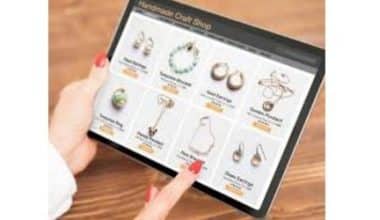Cosmetics are a crucial part of our daily lives; therefore, it’s no wonder that the cosmetic industry is booming all over the world, including in Nigeria. The Nigerian cosmetics sector has evolved dramatically over the years, with a growing number of people wanting to look and feel well. Starting a cosmetic business in Nigeria can be a profitable endeavor if done right. This post will lead you through the steps of opening a profitable cosmetic business in Nigeria.
What is the Cosmetic Business?
A cosmetic company creates, distributes, and sells personal care and beauty goods. The company might produce cosmetics, skincare, hair care, and personal care items. Cosmetic enterprises can be created on a small or large scale, depending on the entrepreneur’s vision and financial capacity.
Is A Cosmetic Business Profitable in Nigeria?
Nigeria’s cosmetic sector is profitable, with a market value of more than $2 billion. As more individuals become interested in beauty and personal care goods, the beauty sector has grown. The Nigerian cosmetics market is vast, and with the correct business methods, entrepreneurs may generate considerable profits.
The Cost Of Opening A Profitable Cosmetic Business in Nigeria
The cost of opening a profitable cosmetic business in Nigeria varies depending on the size of the organization. A small-scale cosmetics business can be started with as little as N50,000, whilst a large-scale operation can cost millions of Naira. The type of product, marketing strategies, and distribution channels all affect how much it costs to start a cosmetics business.
How to Open A Profitable Cosmetic Business In Nigeria
#1. Comply with the Law
It’s thrilling to launch your own cosmetic skincare line. You’ll certainly be ready to start mixing ingredients and selecting the perfect packaging, but there are a few laws to take care of first.
To begin, learn about the Food, Drug, and Cosmetic Act (FD&C Act). The FDA uses this statute to guarantee that all skincare products fulfill the appropriate quality and safety criteria. Essentially, your products must be safe for people to use and appropriately labeled.
If you make skincare items at home, you must follow the FDA’s Good Manufacturing Practice checklist. This will assist you in setting up your manufacturing environment in accordance with the rules established for home-based cosmetic manufacture.
Consider any licenses and papers you might need to safeguard your brand. If you’re unsure what’s best for your company, consult with an attorney about:
- Professional liability and product liability insurance
- Cosmetic and skincare licensing (as well as professional license for services)
- Health and safety certifications
#2. Identify Your Niche
Skincare is a massive market that includes everything from sunscreen to cleansers, cosmetics, moisturizers, and countless more products. You’ll need to narrow your focus to discover a specific market for the things you’ll be selling. For example, the “Lush” skincare brand creates environmentally sustainable goods for morally sensitive clientele.
Consider selling exfoliators, creams, serums, moisturizers, acne treatments, or facial oils. Next, consider what makes your product distinctive and who your unique selling feature might appeal to.
Here are some examples of skincare niches to get you started:
- Luxury skincare: indulgent products and treatments produced with high-quality components. You might provide dermatologically tested treatments for customers with a larger budget, such as face masks with their own gold flakes.
- Specialist treatment: These products are designed to address a specific skincare concern, such as dry skin or acne. You might make sunscreen for those with sensitive skin or serum for folks with oily skin.
- Socially conscious skincare: Skincare made from natural, mindful ingredients is particularly appealing to today’s audience. To attract an eco-friendly audience, choose a vegan brand or a solution that never tests on animals.
#3. Select a Star Product
As your cosmetic business expands, you’ll add additional products to your portfolio. To begin, you’ll need a specific item to attract customer attention. This will be your flagship, or as it is commonly referred to in the skincare market, your “hero” product.
When your company first opens, your hero product is the most exciting product you have to offer. Consider which item could serve as the face of your upcoming cosmetic business. One possibility is to select a product that addresses a specific consumer pain point.
Wunder2’s star product, for example, is its “semi-permanent” makeup, such as the “Wonderbrow” gel for eyebrow shaping. Customers are drawn to the product since it relieves them of the need to fill their brows on a regular basis. Though the company sells other items, the long-lasting “wonder” products are the most popular.
Another strategy to determine your hero product is to outline your brand’s values and message. If your skincare line is fully cruelty-free, make sure your hero product is as well. Choose a product that reflects your brand’s image.
#4. Find a Manufacturer
Unless you make all of your cosmetic skincare products in the comfort of your own home, you’ll need a reputed manufacturer. When designing your own brand, selecting the proper manufacturer can relieve a lot of stress.
A reputable manufacturer can make your products in bulk, quickly, and to the greatest regulatory requirements, allowing you to focus on growing your brand. All you need to do is choose a company you can rely on.
Choosing a local manufacturer increases your chances of being able to reach your partner anytime you need to and getting things dispatched faster.
On the other hand, working with an overseas manufacturer gives you access to a greater selection of items at a lesser cost. However, it’s critical to thoroughly research your supplier, especially if you’re considering shopping from OEM manufacturers on sites like Alibaba. Consider the following examples:
- Expertise: Does this supplier have a large selection of products that are suitable for your selected niche? How long have they been making products in this industry?
- Compliance: Are the manufacturers you wish to engage with in accordance with the health and safety norms of the countries where you want to sell? Check to see if they have the proper licensing and what materials they use to manufacture their items.
- Shipping: How quickly can your manufacturer produce and distribute your products? Although working with abroad companies can be less expensive, it is useless if your clients have to wait months for their things.
It’s also important to research the level of customer service you may expect. How long will you have to wait for a response if you have issues or questions regarding a product?
#5. Create Your Own Cosmetic Skincare Brand
Customers form a relationship with your brand and the personality you create for your company, not just with your product.
Your skincare brand will be a synthesis of everything you do to distinguish yourself from the competitors. This encompasses not just your product line but also your packaging, brand colors, logo, and even your company name.
The following are the primary steps in brand development:
Choose a business name.
One of the most memorable components of your brand is your company name. Ideally, you should select something that corresponds to your brand values. Organica Beauty, for example, might be the name of an organic skincare company. Keep your name as brief, easy to spell, and uncomplicated as feasible. It’s also a good idea to double-check if the name is available before attempting to use it.
Make a logo.
Along with your name, your logo is likely to be the first brand asset that your customers recognize. A great logo will condense your company’s main ideals into a single image. A luxury skincare company might employ shapes associated with luxury, such as diamonds, whereas an organic brand might use shapes from nature, such as leaves. We’ve compiled a selection of free logo creators that you may use to create your brand’s logo.
Create eye-catching product packaging.
Your packaging should symbolize your brand while also protecting your products. Choose something you can personalize with your company’s colors and branding, but make sure the packaging is functional. Great product packaging is inventive, lightweight, and environmentally friendly. For example, you might create a recyclable moisturizer pot that also serves as a collectible storage container for your consumers.
#6. Create an Online Store
It’s time to construct your online store now that your products and brand are ready to go to market.
The good news for today’s skincare firms is that e-commerce platforms make it simple for anyone to start selling items online. For example, you can use Shopify to create an online store without any technological support.
Simply create a Shopify account, select a theme, and customize your shop’s layout to reflect your brand. Although the specific pages required for your store will vary, most businesses will require the following:
- Page Description: Create a page where you introduce your clients to your firm and provide the unique selling features that distinguish your items. Check out these about us page templates for inspiration and design ideas.
- Product pages: Create pages to showcase your products, complete with great imagery and epic product descriptions. Make sure you know what terms your clients are looking for while searching for your products online so you can include them to the relevant product listing.
- Marketing tools: Make sure your website features an email newsletter subscription form so you can nurture consumers who aren’t ready to convert right away. It’s also a good idea to include a blog for content marketing and links to your social media profiles for community building.
#7. Market Your Cosmetic Skincare Line
It’s now time to get your stuff in front of the proper people.
As the skincare market expands, there is increasing competition for new brands. With the correct marketing plan, you should be able to outperform your competition and attract the attention of clients who are most likely to profit from your product.
Using your user personas, consider what types of marketing materials are most likely to appeal to your target demographic and where they are most likely to notice your campaigns. For example, younger audiences are more inclined to browse for skincare items on TikTok, whereas older audiences may prefer traditional TV or Facebook ads.
Once you’ve determined where people are most likely to view your ads, try out methods that have been proved to work in the beauty and skincare market, such as:
It’s no secret that customers read product reviews before making a purchase. Encourage your current customers to submit reviews and testimonials on your items to help convince potential customers that your skincare products are worth their time. You can produce social proof with applications like Yopto and keep an eye out for organic @mentions on social media.
Influencer marketing
Connecting with the proper influencer will quickly increase the credibility of your brand. Consider who your clients already trust online and invest in relationship opportunities with them. You can develop trust by association by providing complimentary items to your influencer partners in exchange for an honest review, or by collaborating with other complementary beauty businesses on competitions and giveaways.
User-generated content
Today’s customers are less trusting of brands. Clients will want to see evidence of other individuals utilizing your skincare product before they feel comfortable using it themselves. Reposting photographs of other customers wearing your facemasks or videos of clients using your moisturizer will provide wonderful social proof. This user-generated material is also a terrific approach to increase your company’s credibility. For example, @Illumasqua routinely shares photographs of their customers utilizing their items with @mentions.
Pay attention to how your clients react to your campaigns to identify which initiatives are worth investing more in.
How much Do You Need To Start A Small Cosmetic Business?
A small-scale cosmetics business can be started with as little as N50,000, whilst a large-scale operation can cost millions of Naira. The type of product, marketing strategies, and distribution channels all affect how much it costs to start a cosmetics business.
What is the Biggest Problem For Beauty Industry?
Unfortunately, excessive packaging, plastic pollution, and unsustainable resource consumption are major issues in the cosmetic sector that have terrible environmental consequences. Every year, 120 billion units of beauty packaging are produced.
How Hard Is It To Start A Beauty Business?
If you plan carefully, starting a cosmetic business is not difficult. It can be difficult if you don’t know what you need to know about the industry! Many entrepreneurs spend a significant amount of time prior to releasing their products determining exactly what they want for their business.
Opening A Profitable Cosmetic Business In Nigeria: Conclusion
Considering the continued excellence market, starting a profitable cosmetic skincare business in 2023 might assist you in getting wealthy. This is most appropriate if you pick the best stage improvement organization to help your foundation with the most recent highlights. A simple application interface substantially boosts client commitment. Whether it’s a serum, skincare cream, or cleaning agent, the item can reach the pinnacle of advancement in the appropriate direction.
- PRODUCT LABELING: What Is It & Why Is It Important?
- PRODUCT LINE: All you should know with Practical Examples(+ Free Tips)
- WHAT’S AN ESTHETICIAN: Duties, Job Description and Salary
- PRIVATE LABEL COSMETICS: Top Best Private Label Cosmetics






